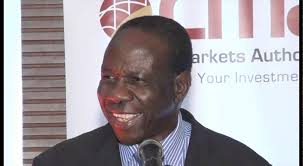The Ministry of Finance on Thursday March 10 submitted five bills to Parliament, seeking amendments to five existing Acts.
The Bills, all signed off by finance minister Matia Kasaija, will if passed, pave way for a raft of changes in the Finance Act, the Value Added Tax Act, the Stamp Duty Act, the Income Tax Act and the Excise Duty Act.
Highlights in the variations sought for the Finance Act include among others variations on the environmental levy charged on used clothes and shoes, in the process attracting 20 per cent of the CIF value, up from 15 per cent; providing for the Uganda Revenue Authority (URA) to issue certificates of origin; waivers of arrears of tax accruing from SACCOs and the revision of non-tax revenue relating to services and documents under the Traffic and Road Safety Act, 1998.
In the new seven-part bill now before Parliament, under Section 6, CAP 361 Mr Kasaija wants personalized number plates issued out at Shs20 million and an original driving permit for 5 years issued out at Shs250, 000. A three-year driving permit is premised at Shs150, 000, while a one-year driving permit will go for Shs55, 000.
Renewal for a five year driving permit will cost an individual Shs200, 000, while a permit will go for Shs130, 000. Renewal of a one year permit will cost Shs 50, 000.
Other factors include repeal of fees in respect to the Mining Act 2003; items which should not benefit from the tariff treatment of goods from COMESA; notification of a licensing officer about a change in the ownership of a motor vehicle from fourteen days to three months and to make it an offense to fail to notify a licensing officer within that period.
The Minister also seeks amendments in respect to the Value Added Tax Act, Cap 349, to ‘provide for persons engaged in midstream petroleum operations to register as taxable persons under the Act’. He also seeks to remove compact fluorescent bulbs and LED lamps or bulbs from the list of exempt goods; to include other specified agricultural processing machinery on the list of exempted supplies; to provide for the tax treatment of suppliers to contractors executing Aid funded projects; to exempt from tax, the supply of any goods and services to the contractors and subcontractors of hydroelectric power, solar power and geothermal power projects.
On stamp Duty 2014, Act No 13 of 2014, the Minister seeks to amend Schedule 2 to ‘vary stamp duty charged on certain instruments under the Act’, while under the Income Tax Act Cap.340 Mr Kasaija seeks to provide for carry forward of losses in respect to mergers and acquisitions; to provide for the rate of tax payable by a non-resident person deriving rent from Uganda; to exclude public listed companies from the shareholding requirements as regards accessing benefits provided in an international agreement. Others are: ‘to amend the definition of petroleum taxation; to impose an obligation on persons employed by diplomatic institutions and institutions with diplomatic privileges to file returns of income with URA; to provide for any person making payments to non-residents to withhold tax from the payments; to add the International Centre for Research in Agro-Forestry (ICRAF) and the International Potato Centre to the listed institutions; and to amend the Second Schedule to the Income Tax Act to remove clinics from the businesses or trades paying tax and to revise the tax payable relating to drug shops’.
On the Excise Duty Act the Minister seeks to amend Act No.11 of 2014 to provide for a refund of duty on excisable goods which are converted into healthcare or medical products.
Others are: ‘to amend Schedule 2 of the Excise Duty Act 2014 and to enhance excise duty in respect of certain excisable goods including soft cap cigarettes, hinge lid cigarettes, cigars, cheroots and cigarillos containing tobacco, smoking tobacco whether or not containing tobacco substitutes in any proportion, homogenised or reconstituted tobacco, ready to drink spirits, cement, motor spirit (gasoline), gas oil (automotive, light, amber for high speed engine), cane or beet sugar and chemically pure sucrose in solid form, motor vehicle lubricants, sugar confectioneries (chewing gum, sweets and chocolates), and to remove excise duty on specialised hospital furniture and international incoming calls’.








